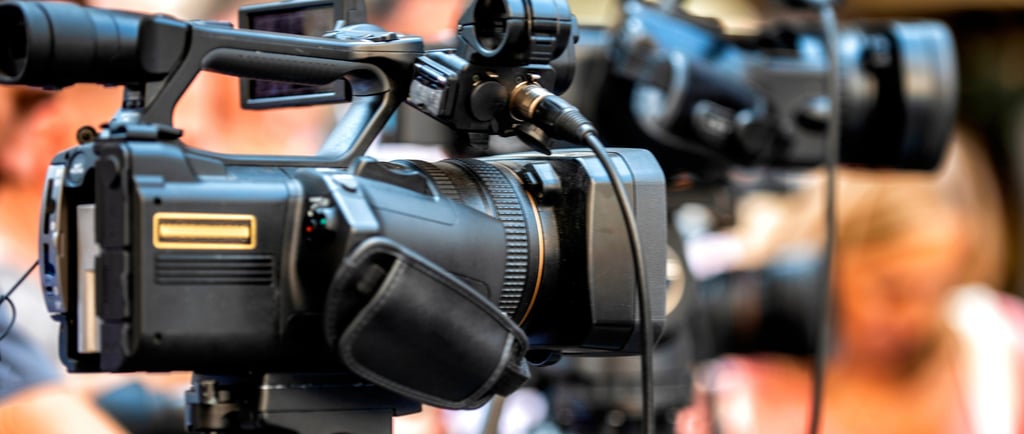Choosing the Best Camera for Your Documentary Film: A Comprehensive Guide
Documentary filmmaking requires a camera that can handle a variety of shooting conditions and deliver high-quality footage. The right camera can make a significant difference in the overall look and feel of your film. Here's a guide to help you choose the best camera for shooting your documentary.
Pixel
8/1/20242 min read


1. Understanding Your Needs
Before diving into specific camera models, consider the following aspects of your documentary:
Budget: Determine how much you can spend. Cameras range from affordable to high-end, so having a budget will narrow down your options.
Portability: If your documentary involves a lot of travel or shooting in remote locations, a lightweight and compact camera is essential.
Durability: For shooting in rugged or challenging environments, you'll need a camera that can withstand harsh conditions.
Image Quality: High resolution, good low-light performance, and dynamic range are critical for capturing high-quality footage.
2. Key Features to Look For
When selecting a camera, consider these key features:
Resolution: Aim for at least 4K resolution to ensure your footage looks sharp and future-proof.
Sensor Size: Larger sensors (e.g., full-frame or Super 35) generally offer better image quality, especially in low light.
Lens Compatibility: The ability to use interchangeable lenses gives you flexibility in your shots.
Battery Life: Long battery life is crucial for extended shooting sessions.
Stabilization: In-body or lens stabilization helps produce smooth footage, especially when handheld.
Audio Quality: Good built-in microphones or support for external mics is vital for capturing clear sound.
3. Top Camera Recommendations
Here are some of the best cameras for documentary filmmaking, catering to different needs and budgets:
Budget-Friendly Options
Canon EOS M50 Mark II: A compact and affordable option with 4K video capability, dual pixel autofocus, and excellent portability.
Sony ZV-E10: Known for its vlog-friendly features, this camera offers 4K video, good autofocus, and a lightweight design.
Mid-Range Options
Panasonic GH5: A favorite among documentary filmmakers for its robust build, excellent 4K video quality, and in-body stabilization.
Sony A7 III: Offers impressive low-light performance, full-frame sensor, and great battery life, making it versatile for various shooting conditions.
High-End Options
Canon EOS C70: Combines the best features of cinema cameras with a compact form, offering 4K 120p recording, dual pixel autofocus, and excellent dynamic range.
Sony FX6: A compact cinema camera with outstanding low-light capabilities, 4K recording up to 120fps, and professional-grade features.
4. Accessories to Enhance Your Filming
To get the most out of your camera, consider these essential accessories:
External Microphone: For capturing high-quality audio.
Tripod or Gimbal: For stable and smooth shots.
Extra Batteries: To ensure you never run out of power during crucial moments.
ND Filters: To manage exposure in bright conditions.
5. Conclusion
Choosing the right camera for your documentary film depends on your specific needs and budget. Whether you're looking for something budget-friendly or a high-end professional setup, there are plenty of options available. Consider the key features, and don't forget about essential accessories to enhance your filming experience. With the right equipment, you'll be well on your way to creating a compelling and visually stunning documentary.
By understanding your unique requirements and the various options available, you can make an informed decision that will help bring your documentary vision to life. What features do you consider most important in a camera for documentary filmmaking?